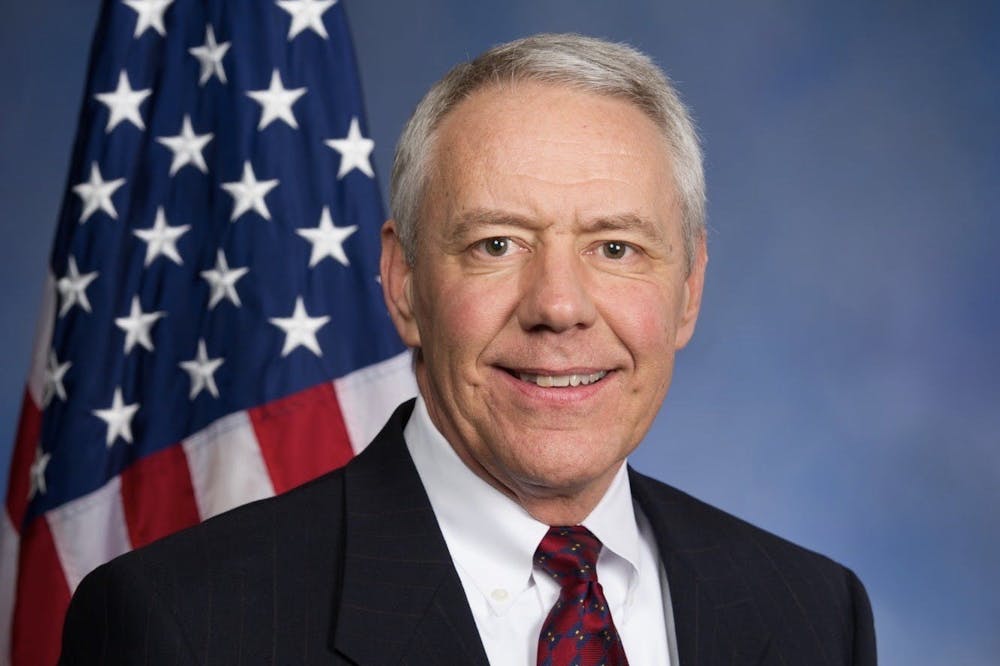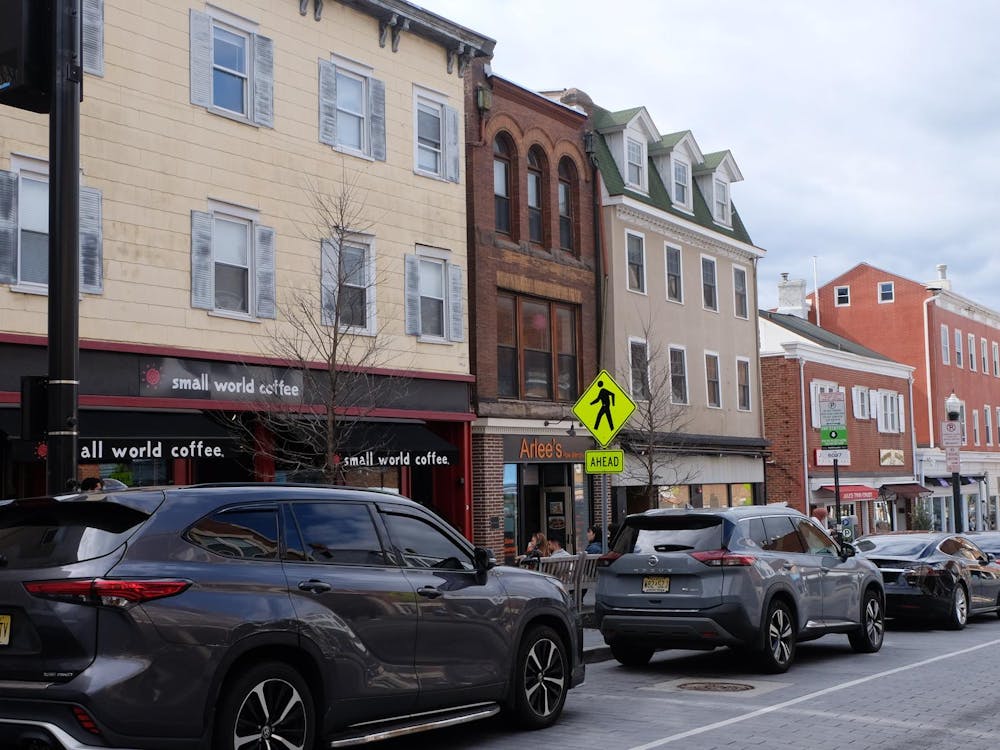At a panel conversation on free speech and revisionism held yesterday, Rep. Ken Buck ’81 (R-Colo.) and Professor of Mathematics Sergiu Klainerman criticized the recent removal of Woodrow Wilson’s name from the residential college and the School of Public and International Affairs.
“You don’t want to give the impression that our history can be changed by a radical group just because they are more vocal,” Klainerman said in response to a question from Rebecca Han ’22 about statues, monuments, and buildings that honor historical figures. Han is a staff writer for The Daily Princetonian.
“If people want to change certain statues that have to do with Confederate heroes, that’s fine, let them discuss it in the most natural way. But the talk now is not Confederate statues. People are talking about Jefferson, Washington, and this is really radical,” Klainerman added.
Both Buck and Klainerman have written about the University’s actions, including the Wilson renaming, in recent months. In National Review, Buck condemned the removal of Wilson’s name, while Klainerman deemed the University “one of the least racist institutions in the world” in both Newsweek and Quillette.
Buck, who represents Colorado’s 4th Congressional District and has belonged to the Federalist Society since 1986, responded to a question from Chase Chiang ’23 about Georgia’s Stone Mountain, which bears massive images of three Confederate leaders.
“I have no problem with the people in that county talking about how to address the fact that they are celebrating, recognizing, [and] honoring people that should not be celebrated and recognized … But it shouldn’t be done by a mob, and it shouldn’t be done with a narrow view of history,” Buck said.
The panelists also referred to a September message to the community, in which President Christopher Eisgruber ’83 wrote, “Racism and the damage it does to people of color nevertheless persist at Princeton.” The message precipitated the Department of Education’s widely-covered civil rights investigation into the University.
Buck opened the event by remarking on the rise of “cancel culture.” He said, “I’m really concerned about the cancel culture that we see in the country right now and on campuses, and really, it has permeated into the larger society.”

“The whole idea that we have in political discourse in this country is that there are no safe spaces, that every idea will be challenged and made better through the process of challenging the idea,” he said.
“I think that when universities allowed safe spaces and cared about triggers and other things, we got into something in our society that is directly contrary to what our founders believed in and what has made this country great in terms of our political system,” he added.
Klainerman, who recalled growing up in Communist Romania, echoed Buck’s concerns. “I feel,” he said, “that we live at a time when many people feel that free speech is a real impediment to social justice, and this is social justice in this modern, post-modernist version of radical equality, and it’s a time when the silent majority, most people on campuses and everywhere, are either confused or intimidated and quite afraid to speak out for fear of being ostracized.”
In his discussion of free speech, Klainerman referenced Soviet dissident Natan Sharansky’s theory of “fear societies.”

“If a person cannot walk in the middle of the town square and express his or her views without fear of arrest or imprisonment or physical harm, then that person is living in a fear society, not a free society,” he said.
“Clearly, nobody on our campus today fears arrest, imprisonment, or physical harm for speaking their minds in the University, yet one can hear a cacophony of voices demanding a ban on any type of speech that may violate the particular sensitivities of what is good,” he added.
The same night as the panel, Eisgruber reaffirmed the University’s decision not to take disciplinary action against students who engage in “extremely offensive” speech.
“Our speech policy, which I support, has very limited exceptions in it and the fact of something being extremely offensive is not one of those exceptions,” Eisgruber said at a town hall on racial equity.
The two speakers then answered questions from students and faculty.
Thaddeus Whelan ’21 asked Buck and Klainerman to provide examples of when they saw people genuinely “canceled.” Buck responded that, following Black Lives Matter protests in Denver, “a group of conservatives decided they were going to have a rally at the Capitol, they got a permit for the rally, they went out … they were completely peaceful, and then the rioters attacked.”
He was apparently referring to a July clash between anti-police and pro-police protestors, which turned violent. Police officers used chemical agents and less-than-lethal weapons to disperse protestors.
When asked by Hope Perry ’24 about how to move forward, Buck said, “It’s so important in America that we are able to talk to each other, and that’s one of the things that we’re missing right now.”
Buck also promoted his recently released book, “The Capitol of Freedom: Restoring American Greatness,” which is advertised as “showing how conservatives can halt the progressives’ plans, preserve our remaining freedoms, and reclaim what we’ve lost.”
The Princeton Federalist Society and the Clio Party co-hosted the event, titled “Princeton’s Inconsistency on Free Speech and Revisionism,” on Monday, Oct. 26. Federalist Society President and Deputy Clio Chair Abigail Anthony ’23 moderated the discussion.
This event was not an endorsement of Rep. Buck, and the Federalist Society did not take any position on the issues presented in the panel.








